Writing: Fiction
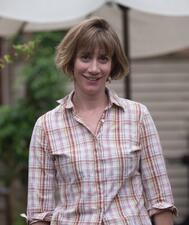
Laura Moser
Mary Moss
Lazarus, Nahida Ruth
Nahida Ruth Lazarus was a German-Jewish cultural and literary critic, author, journalist, and essayist who was born in Berlin to a German-Christian family and converted to Judaism in 1895. She is best known for her published source book, The Jewish Woman (1891), a product of her fundamental interest in both feminism and Judaism that remains an important text for women’s and gender studies.
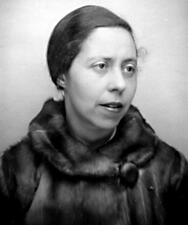
Irene Nemirovsky
Isadora Newman
Isadora Newman was a celebrated writer, storyteller, poet, and artist. Born in New Orleans, her stories often focused on Creole and Black life and legend and folktales from foreign countries. Her books were translated into many languages and she later became an accomplished painter and sculptor.
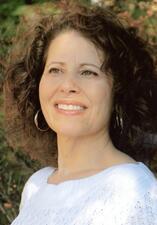
Lesléa Newman
Lesbian feminist writer Lesléa Newman made history in 1989 with her controversial children’s book, Heather Has Two Mommies. Inspired by Newman’s friend, a lesbian mother who complained that there were no children’s books with families that looked like hers, the book sparked national controversy. Newman has written countless books for children, adolescents, and adults on homosexuality, Jewish identity, eating disorders, and AIDS.
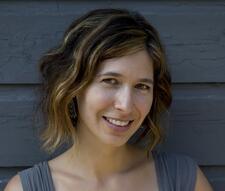
Idra Novey
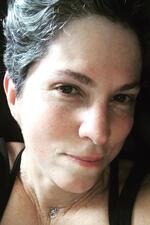
Achy Obejas
Writer, translator, and activist Achy Obejas was born in Havana, Cuba, in 1956 and moved to the United States with her parents six years later. She is known for stories with characters and themes related to gender, queer sexuality, Cuban-ness, and Jewishness, as well as migration, displacement, and diaspora.
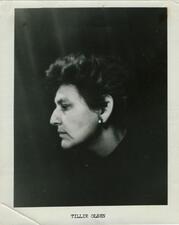
Tillie Olsen
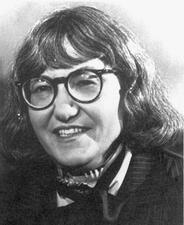
Cynthia Ozick
Cynthia Ozick is a Jewish-American writer, novelist, essayist, and playwright. Her creative, authentic, and intelligent stories, including “The Shawl” (1989) and “The Puttermesser Papers” (1997), have made her one of the greatest fiction writers and literary critics alive.
Rosa Palatnik
Rosa Palatnik, born in a shtetl near Lublin, was a prolific Yiddish author. She told stories of Jewish immigrants struggling to integrate into new lives in Poland, France, and Brazil, the three countries in which she lived. Her stories were witty and rich, with a complex relationship to the Jewish past and tradition, especially after the Holocaust.
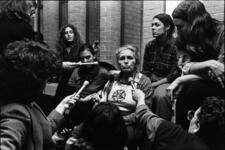
Grace Paley
Grace Paley wrote highly acclaimed short stories, poetry, and reflections on contemporary politics and culture. A rare example of a writer deeply engaged with the world, Grace Paley made an impact as much through her activism as her writing.
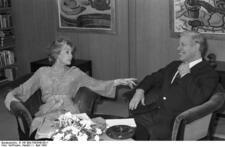
Lilli Palmer
After fleeing Nazi Germany, Lilli Palmer pursued her acting career in Paris, London, Hollywood, and New York. In the 1950s, she returned to Germany, becoming celebrated once again in her home country. Palmer was not only a prominent actor in numerous successful plays, films and television programs, but also a painter and an author of both fiction and non-fiction.
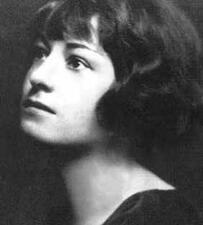
Dorothy Rothschild Parker
Writer, poet, critic, and screenwriter Dorothy Parker became known for her fierce wit as Vanity Fair’s drama critic in 1918 and as a founder of the “Algonquin Round Table.” She wrote multiple successful volumes of poetry and short stories and co-wrote the screenplay for the original A Star Is Born (1939). Parker was also committed to activism and numerous political causes.
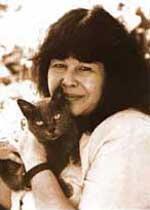
Marge Piercy
Novelist and poet Marge Piercy's life and life’s work reflect her deep engagement with political activism, feminism, and Judaism. In genres including fiction, poetry, liturgy, memoir, and essays, Piercy’s work brings together spirituality, creativity, memory, sensuality, and political engagement.
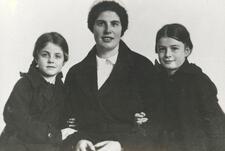
Clara Asscher Pinkhof
Clara Asscher Pinkhof dedicated her life and work to helping and advocating for Jewish children, initially as a teacher and later as an author. She is most known for her accounts of the experiences of Jewish children during the Nazi occupation.
Mimi Pinzón
Mimi Pinzón published a wide variety of acclaimed literary works in Yiddish, including her childhood novel Der hoyf on fenster, along with numerous Yiddish periodicals in Argentina and elsewhere. Pinzón is arguably the sole significant Yiddish writer who spent none of her school years in Eastern Europe.
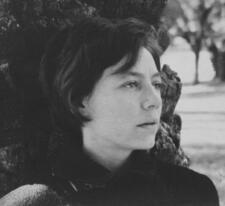
Alejandra Pizarnik
With a vast body of work that includes books of poetry, prose works, essays, and diaries, Alejandra Pizarnik (Argentina, 1936-1972) stands out as one of the most important and influential figures in twentieth-century Latin American poetry.
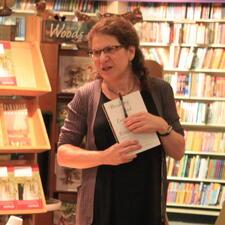
Eileen Pollack
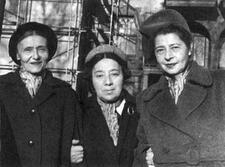
Rikudah Potash
Crowned “the Poetess of Jerusalem” by Sholem Asch, Rikudah Potash wrote in Yiddish about the landscape of her beloved city and its diverse ethnic communities. She brought to Yiddish readers the rarely seen Middle Eastern Jewish woman. Potash’s Jerusalem, both the heavenly and the earthly, was a capacious universe that she inhabited, body and soul, for thirty years.
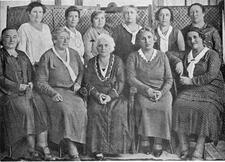
Nehamah Pukhachewsky
Nehamah Pukhachewsky’s writings advocated for Jewish women with a feminist confidence that resonates with readers to this day. Pukhachewsky immigrated from Lithuania to Palestine in 1889, actively participating in agriculture and women’s rights movements along with writing articles for Hebrew journals. She is remembered as one of the first modern Hebrew women prose writers.
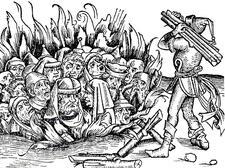
Pulcellina of Blois
Pulcellina was a prominent and powerful Jewish moneylender in twelfth-century Blois. In 1171, she was burned at the stake with mother than 30 other Jews on the false accusation of murdering a Christian boy.
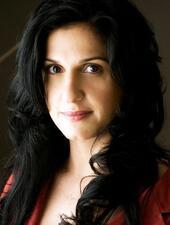
Dorit Rabinyan
Dorit Rabinyan was born in Israel in 1972 to a family that emigrated from Iran. She is an acclaimed and popular author whose writings highlight her Jewish/Persian heritage and provide a critique of the position of women and the effects of the Israeli/Palestinian conflict on individuals.
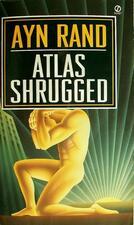
Ayn Rand
Miriam Raskin
After participating in the 1905 Russian Revolution and immigrating to New York, Miriam Raskin wrote about the lives of ordinary, young Jewish women who defied convention and joined revolutionary movements. She published three books, a serialized novel, and numerous short stories in various periodicals. She was praised for her ability to “paint” vibrate pictures of her characters’ lives.


